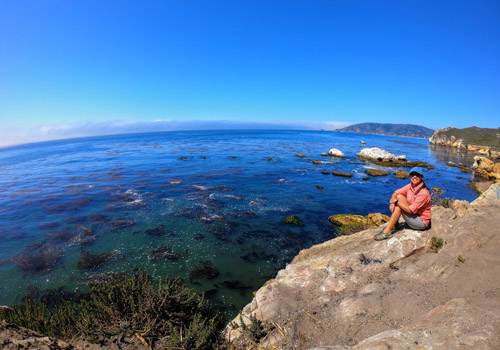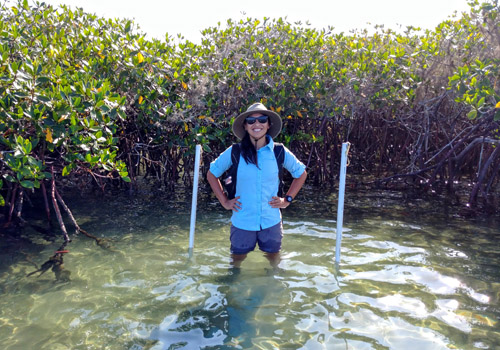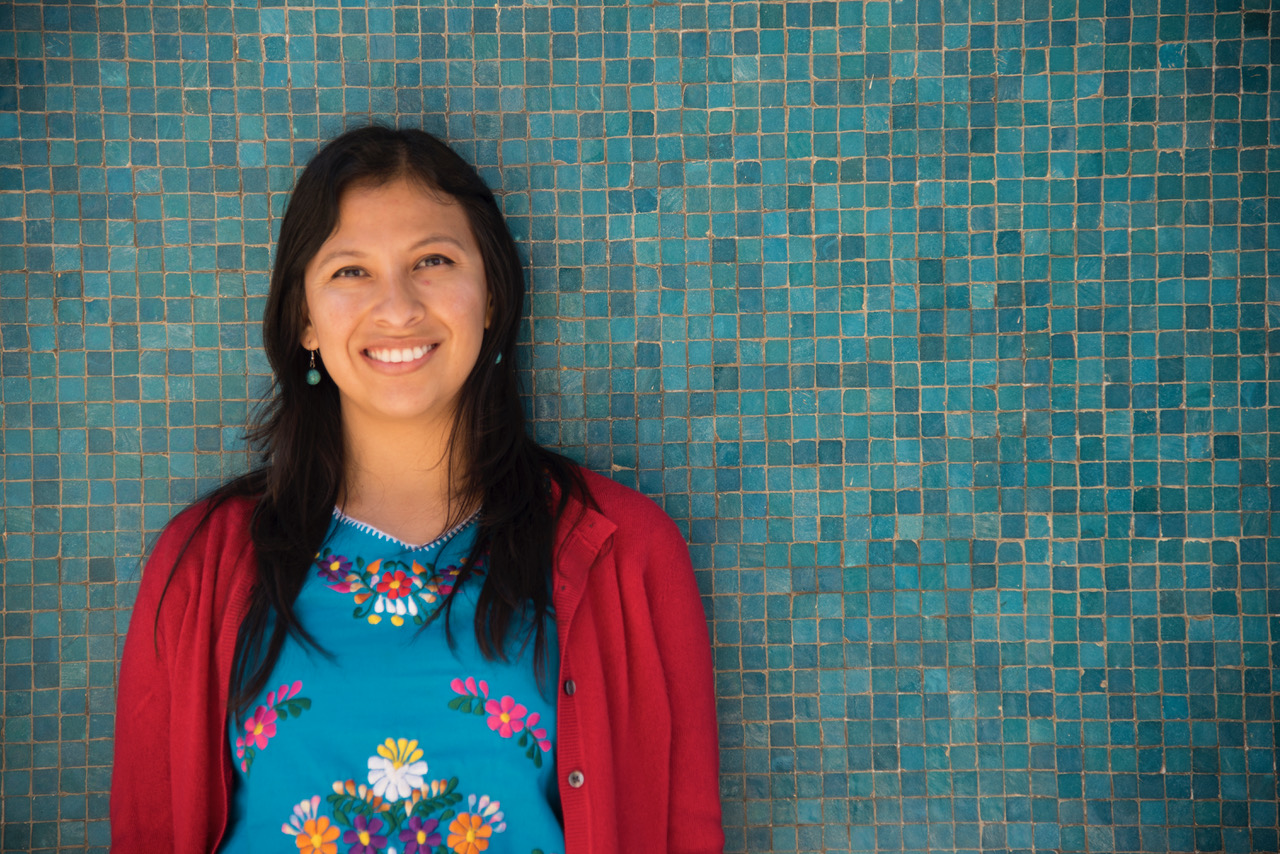Anaí Novoa is third-year PhD student who majoring in marine biology at Scripps Institution of Oceanography at the University of California San Diego. Her field of study is biogeography and is being advised by Scripps scientist Ryan Hechinger. Before coming to Scripps, Novoa earned her BA in biology from the University of California Santa Barbara.
explorations now: Why did you choose to attend Scripps?
Anaí Novoa: In 2011, I participated in the SURF program and fell in love with Scripps. I ultimately chose to attend so that I could work with my advisor, Ryan Hechinger, a world expert on parasite ecology.
en: What are you researching at Scripps?
AN: I am investigating how parasitism maps onto the biogeography—or geographical distribution—of their hosts. Species are increasingly shifting their geographic distributions in response to climate change. Take for example, the louse parasite of estuarine birds—this species of parasite will likely impact the new communities to which they move. A major issue is whether these species will bring their parasites with them, potentially resulting in novel host-parasite interactions or whether these species will leave their parasites behind, resulting in unusually “under-parasitized” members of the new community. We lack basic knowledge about patterns of parasitism throughout host geographic ranges, which would greatly inform our ability to predict how shifting distributions will influence the role of parasitism in the future.

en: What’s life like as a Scripps student?
AN: A typical day for me involves a few hours in the lab conducting parasite dissections, followed by some literature reading of parasite ecology and biogeography.
en: What’s the most exciting thing about your work?
AN: I love it all! My research involves a combination of fieldwork and lab work. Recently, I executed two collection expeditions for the past two summers. Last summer, I collected a suite of wetland invertebrates and fishes from Baja California Sur to the northern tip of Washington, while this summer, I collected a suite of rocky intertidal and sandy beach invertebrates from Baja California Sur to the northern tip of Oregon. Now, I have a mountain of frozen samples to dissect for their parasites.
en: Are there any role models or mentors who have helped you along the way?
AN: I have been very fortunate to have many mentors throughout my academic career. My first mentor was Drew Talley (a professor at the University of San Diego and Scripps alum). I got to work with him as a high school student through an Ocean Discovery Institute program conducting island ecology research in Bahia de Los Angeles, Baja California, Mexico; this was a continuation of the work started by the late Gary Polis. My undergraduate mentor at UC Santa Barbara was Armand Kuris, who also happens to be Ryan Hechinger's PhD advisor. During my master's education at USD, I was lucky enough to have two mentors: Drew Talley and Theresa Sinicrope-Talley. Finally, Ryan Hechinger has been a great scientific role model and mentor during my PhD education/experience.

en: What are some of the challenges you face as a student?
AN: I think most students pursuing a PhD experience Imposter Syndrome which can be very difficult to overcome at times.
I’m a woman of color in STEM with ADHD and first-generation Mexican-American with parents who did not have the same educational luxuries that I have, nor were able to complete an elementary school education. Therefore, navigating through the academia route is no easy feat.
Some days are harder than others and sometimes these discouraging days can turn into weeks. During this time, although it’s easier to focus on your struggles, what helps me is reminding myself of how far I have come by facing challenges and obstacles which have led to the growth I have now. This helps me, personally, by reminding myself of my growth and previous breakthroughs, I reaffirm that I can do it again: I can, I am, and I will continue to work towards being the best me there can be, and the skills I have developed.
en: What are future your plans?
AN: I aspire to pursue a career in academia. I am extremely passionate about research and mentoring.
You can find Anaí on Instagram @anainovoa and LinkedIn.

About Scripps Oceanography
Scripps Institution of Oceanography at the University of California San Diego is one of the world’s most important centers for global earth science research and education. In its second century of discovery, Scripps scientists work to understand and protect the planet, and investigate our oceans, Earth, and atmosphere to find solutions to our greatest environmental challenges. Scripps offers unparalleled education and training for the next generation of scientific and environmental leaders through its undergraduate, master’s and doctoral programs. The institution also operates a fleet of four oceanographic research vessels, and is home to Birch Aquarium at Scripps, the public exploration center that welcomes 500,000 visitors each year.
About UC San Diego
At the University of California San Diego, we embrace a culture of exploration and experimentation. Established in 1960, UC San Diego has been shaped by exceptional scholars who aren’t afraid to look deeper, challenge expectations and redefine conventional wisdom. As one of the top 15 research universities in the world, we are driving innovation and change to advance society, propel economic growth and make our world a better place. Learn more at ucsd.edu.